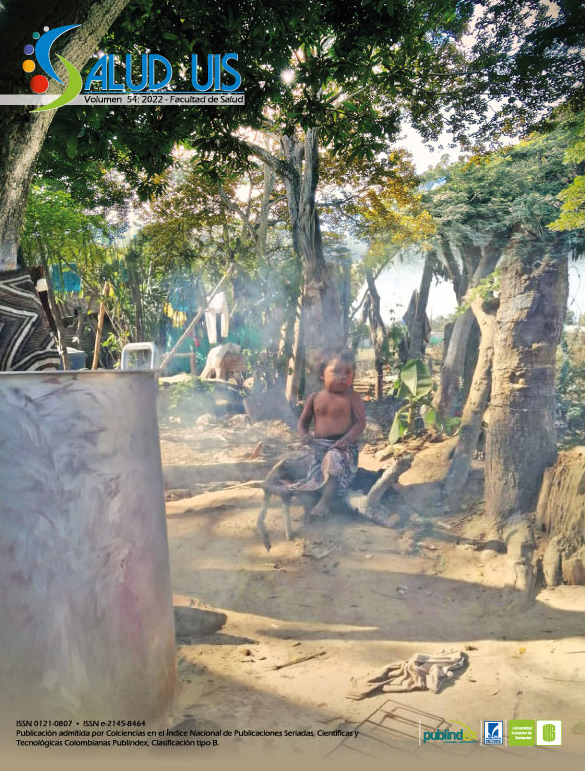Abstract
Introduction: This article aims to establish the scope and challenges of indigenous governance in times of COVID-19 in Colombia since the mechanisms for political participation of indigenous people in Colombia are established in the Constitution. This legal framework respects the decisions made by the indigenous people, including economic and social issues. Methods: Through the analysis of sources, the authors determine how indigenous governance has been limited in times of pandemic emergency and the guarantee of their rights amid restrictions that have not been considered rooted and traditional practices. The recognition of their identity and knowledge -further the principles of coexistence, reconciliation, cooperation, and plurality- promotes the preservation of their autonomy, characterized by territorial management in harmony with nature. Results: the measures enforced by the Colombian government were focused on the health sector to tend to the pandemic emergency, without considering the economic
or social consequences. In this scenario, indigenous governance was relegated, deepening social gaps with a vast history. Discussion: The pandemic caused by the outbreak of COVID-19 also impacted the health of indigenous people, worsening other problems that have been affected them along the time. In the department of Amazonas, the response of the Colombian government to attend to this emergency has revealed the risks and the historical difficulties suffered by indigenous people. Conclusions: In this scenario, the lack of protective actions for the indigenous communities of the Amazon has intensified the historical and structural vulnerabilities they suffered for decades in Colombia.
References
Duke DL, Prictor M, Ekinci E, Hachem M, Burchill LJ. Culturally adaptive governance—building a new framework for equity in aboriginal and torres strait islander health research: theoretical basis, ethics, attributes and evaluation. Int J Environm Res Public Health. 2021; 18(15): 7943. doi: https://doi.org/10.3390/ijerph18157943
Lambert S, Henry R. Surveilling indigenous communities in a time of pandemic. Surveillance & Society. 2020; 18(3): 422-425. doi: https://doi.org/10.24908/ss.v18i3.14259
Hernández-Sampieri R, Torres CP. Metodología de la investigación. México eD. F DF: McGraw-Hill Interamericana; 2018.
CEPAL N. El impacto del COVID-19 en los pueblos indígenas de América Latina-Abya Yala: entre la invisibilización y la resistencia colectiva. https://www.cepal.org/es/publicaciones/46543-impacto-COVID-19-pueblos-indigenas-america-latinaabya-yala-la-invisibilizacion
Howitt R. Decolonizing people, place and country:Nurturing resilience across time and space. Sustainability. 2020; 12(15): 5882. doi: https://doi.org/10.3390/su12155882
Organización Panamericana de la Salud (OPS). El impacto del COVID-19 en los pueblos indígenas de América Latina-Abya Yala: entre la invisibilización y la resistencia colectiva). URI http://hdl.handle.net/11362/46543
Irlbacher-Fox S, MacNeill R. Indigenous governance is an adaptive climate change strategy. Northern Review. 2020; 20(49): 271-275. doi https://doi.org/10.22584/nr49.2020.019
Lugo-Morin DR. Global Mapping of indigenous resilience facing the Challenge of the COVID-19 Pandemic. Challenges. 2021; 12(1):15. doi: https://doi.org/10.3390/challe12010015
Dudgeon P, Derry K, Arabena K, Brideson T, Cairney S, Calma T, et al. A national COVID-19 pandemic issues paper on mental health and wellbeing for Aboriginal and Torres Strait Islander Peoples. Australia: The University of Western Australia, 2020. 29 p.
Rodríguez Cárdenas, S. Transmutaciones del vacío: El problema de la soberanía y el estado de excepción. Editorial Universidad de Caldas; 2018.
Grandia L. Back to the future: The autonomous indigenous communities of Petén, Guatemala. Antípoda. Rev Antropol Arqueol. 2020; (40): 103-127. doi: https://doi.org/10.7440/antipoda40.2020.05
Ignacio Carvajal, P. Agamben, Giorgio, Estado de Excepción (homo sacer II, 1). Rev Chil Derecho. 2006; 33(1): 197-205. doi: http://dx.doi.org/10.4067/S0718-34372006000100015
Buitrago FL, editor. En la encrucijada: Colombia en el siglo XXI. Editorial Norma; 2006.
Gómez Muñoz, J. El derecho penal del enemigo como fundamento teórico para la aplicación del homicidio en persona protegida en Colombia. [Bogotá]: Escuela Superior de Guerra “General Rafael Reyes Prieto”; 2020.
Decreto-ministerial 417 de 2020. Bogotá: Proferido por todos los ministros de Colombia; 2020.
Sistema único de información normativa. Normativa para la atención de la emergencia del COVID-19. Bogotá, 2021. http://www.suin-juriscol.gov.co/legislacion/COVID-19.html
Decreto-ley 1690. Bogotá: Congreso de la República; 2020.
Decreto 814 de 2020. Bogotá: Proferido por el Ministerio de Hacienda y Crédito Público; 2020.
Decreto-ley 812 2020 Bogotá: Proferido por todos los ministros de Colombia; 2020.
Resolución 3287 de 2020. Bogotá: Instituto Colombiano de Bienestar Familiar; 2020.
Circular externa No. 03 del 2020. Bogotá: Ministerio de Cultura; 2020.
Resolución 06 de 2020. Bogotá: Adoptada por al Unidad Administrativa para la Alimentación Escolar Alimentos para Aprender; 2020.
Circular externa 15 de 2020. Bogotá: Ministerio de Salud e Interior; 2020.
Larson E, Johnson Z, Murphy M. Emerging indigenous governance: Ainu rights at the intersection of global norms and domestic institutions. Alternatives. 2008; 33(1): 53-82. doi: https://doi.org/10.1177/030437540803300104

This work is licensed under a Creative Commons Attribution 4.0 International License.
Copyright (c) 2022 Douglas Eduardo Molina-Orjuela, Julieth Tatiana Gómez-Muñoz
